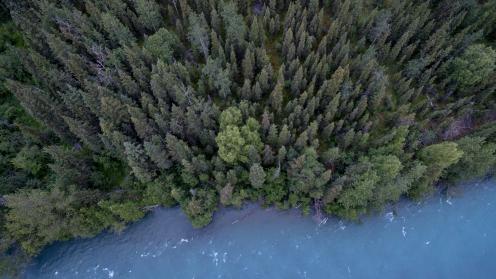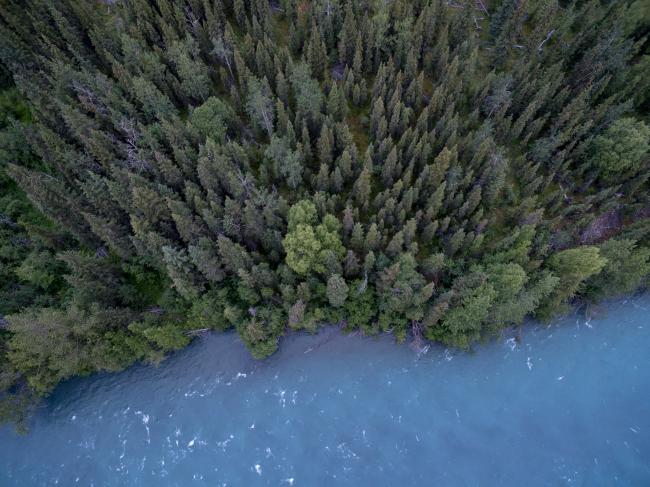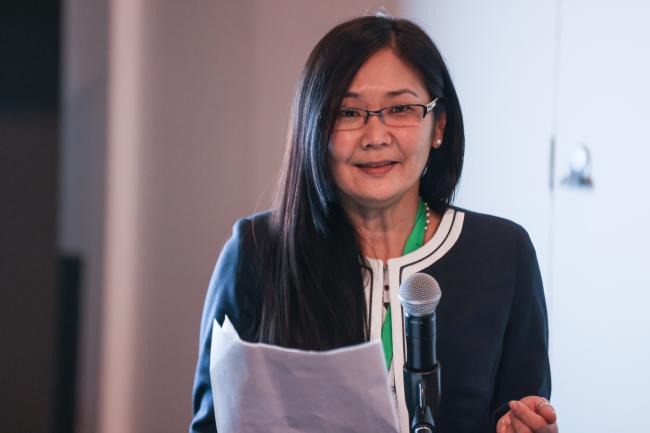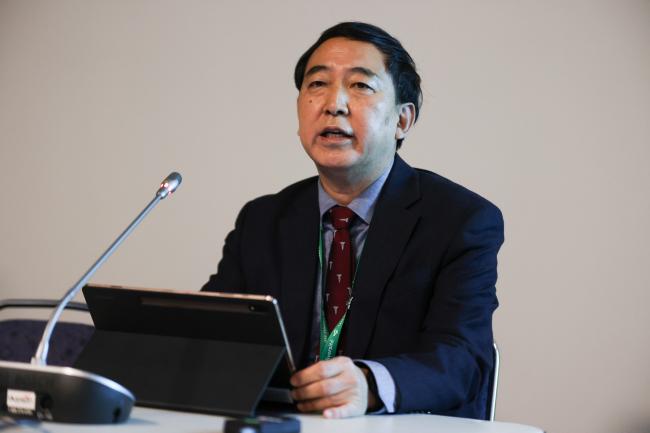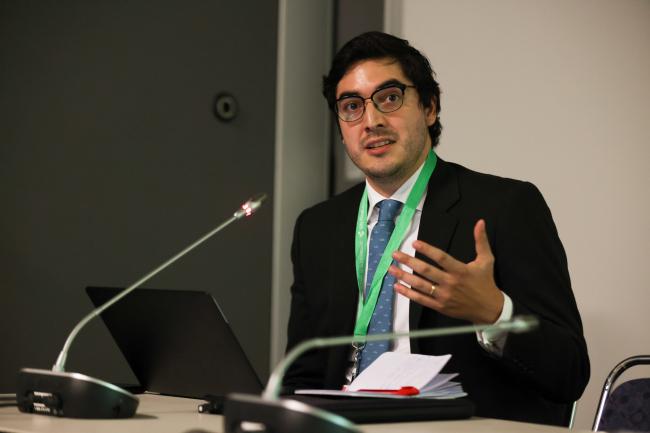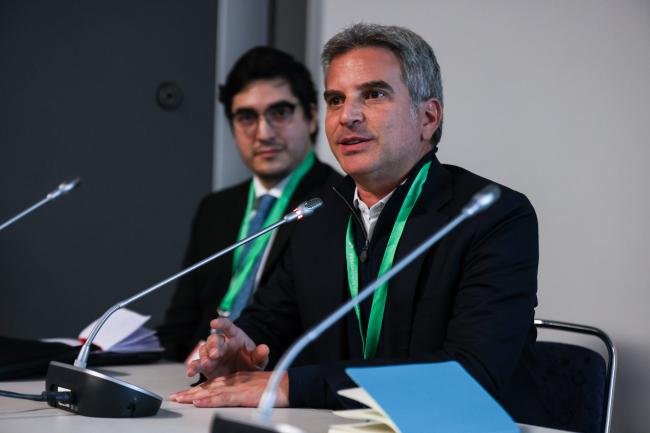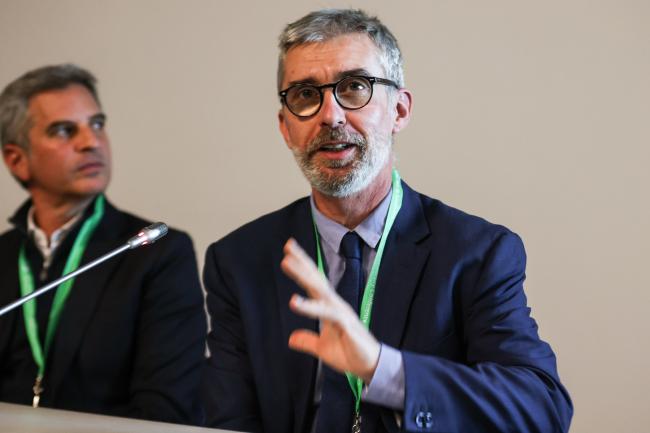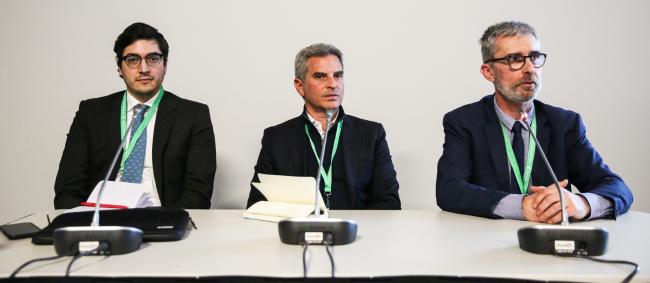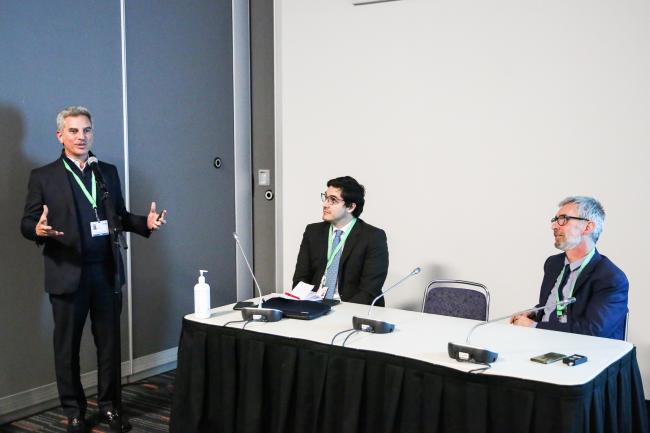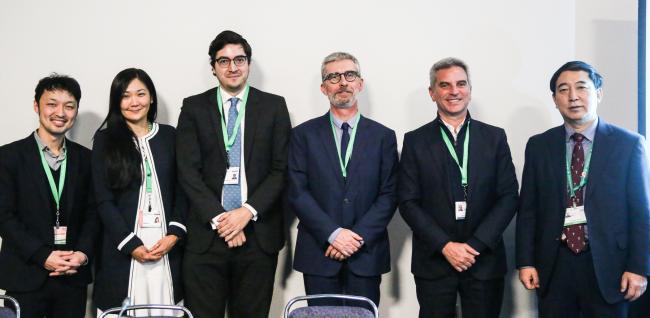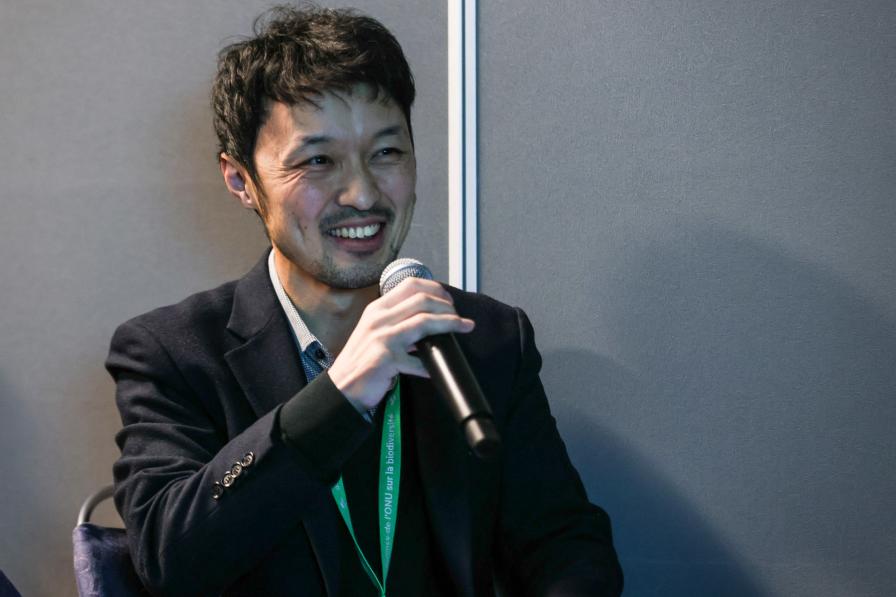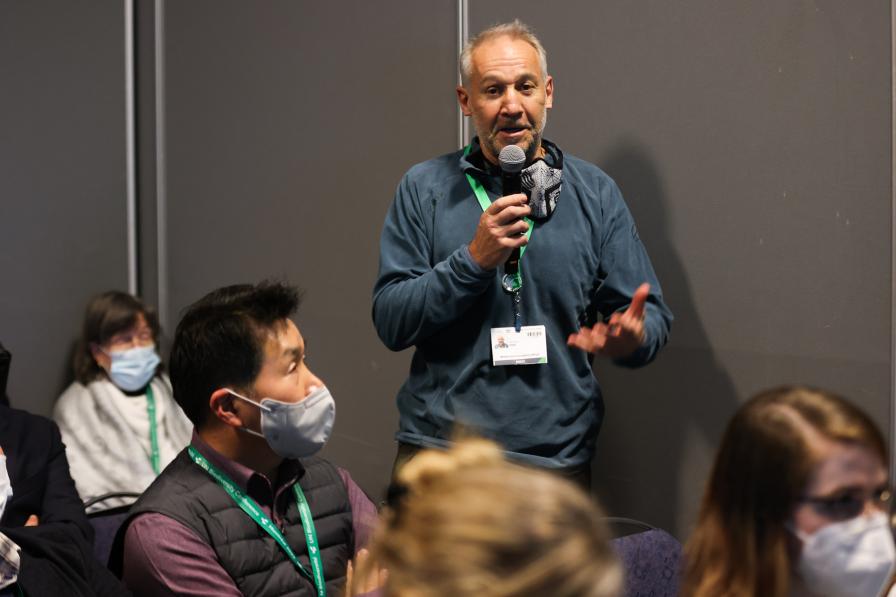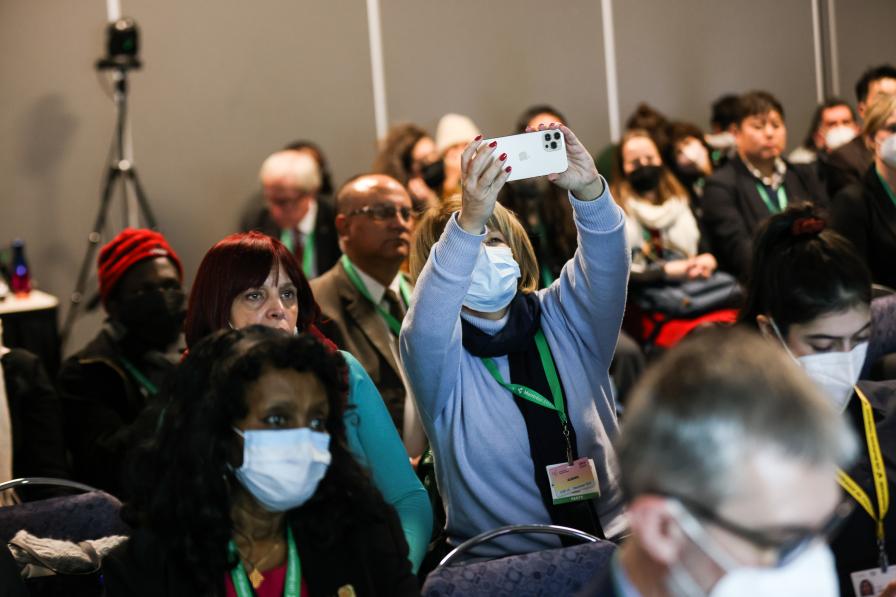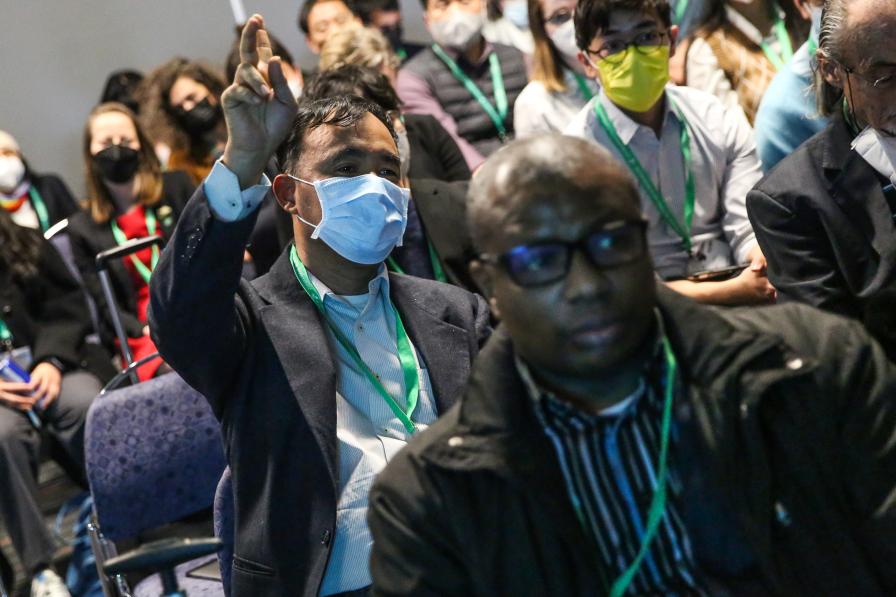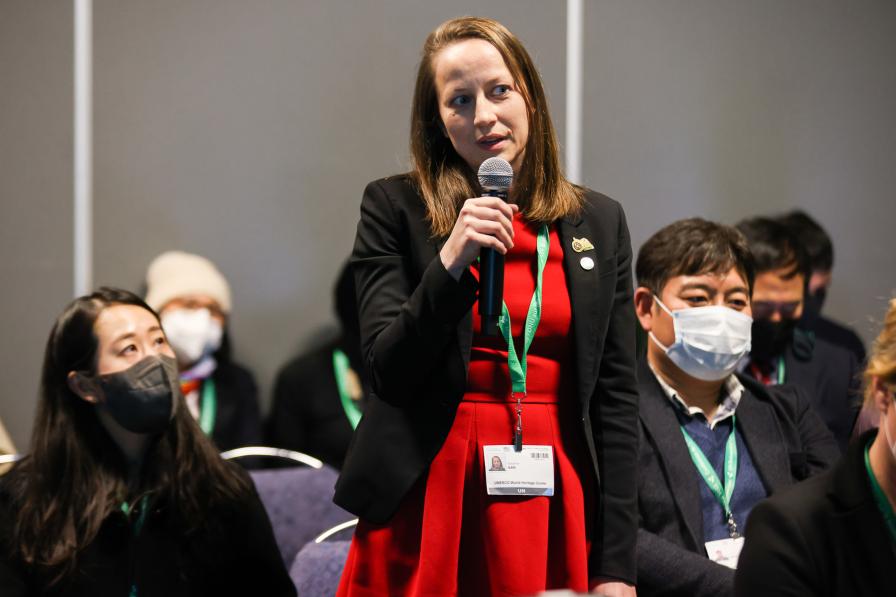About
Experts explained how transboundary conservation areas can contribute to the implementation of the post-2020 global biodiversity framework, improve international relations and cooperation, while also contributing to peace.
The Peace and Biodiversity Dialogue Initiative (PBDI) promotes transboundary cooperation in protected areas globally. Through the PBDI, Parties to the Convention on Biological Diversity (CBD) are able to share knowledge and best practices in transboundary cooperation. They may also strengthen existing cooperation mechanisms or develop new ones with the facilitation of the CBD Secretariat and other partners with relevant expertise.
At this side event, the PBDI shared its roadmap for the period 2022-2024 and received input from partners. This was followed by presentations from experts on how transboundary conservation areas (TBCAs) can contribute to the implementation of the post-2020 global biodiversity framework (GBF), improve international relations and cooperation, and contribute to peace.
Monica Kobayashi, CBD Secretariat, moderated the event. Min Hwan Suh, Ministry of Environment, Republic of Korea, noted the PBDI’s aim is to address transboundary biodiversity conservation, underlining that TBCAs will provide a new paradigm for effective bilateral and multilateral cooperation.
Presenting on the PBDI, Mariano Castro Jimenez, CBD Secretariat, explained that the Republic of Korea launched the Initiative in 2014 to support Parties in promoting collaboration on protected areas across national boundaries. He outlined the objectives of the Initiative, including to:
- promote the value of peace parks and their conservation benefits, especially on how conservation also helps alleviate conflict;
- update information on transboundary conservation needs around the world;
- facilitate the creation of new peace parks and strengthen existing ones;
- disseminate best practices to facilitate a wider acceptance and application of the initiative; and
- facilitate the exchange of data and information on the creation, conservation, and preservation of peace parks.
Reflecting on peace, Carlos Correa, Conservation International, stated that it is related to people and nature. He underlined that building trust is key to building peace, and highlighted the links between nature, people, and peace. He opined that peace is also connected to economic growth and development, calling for the creation of new economic models, including a green economy, which he noted could include carbon markets and improve food security. He underscored the need to manage natural resources to bring about peace, while concurrently addressing climate change, biodiversity loss, desertification, plastic pollution, and forest degradation. He prioritized technological innovation to promote peace, as well as the creation of a new educational model, and increased engagement with Indigenous Peoples, rural communities, and sub-national actors.
Boris Erg, International Union for Conservation of Nature (IUCN), discussed the European Green Belt (EGB) Initiative, which bridges the boundaries of 24 countries to protect Europe’s longest green network. He explained how the EGB is 12,500 km long, spanning 8 biogeographic regions and replaces the Iron Curtain that separated Europe for decades. He recalled how the Initiative began as a democratic and decentralized process and emphasizes both the importance of shared communities and shared ecologies. On current challenges, he noted that the aim of the EGB is not only to foster conservation actions, but to secure the Initiative as a peace project and memorial landscape. He identified the importance of private sector funds to support this peace Initiative.
In the ensuing discussion, participants addressed:
- encroachment and fragmentation of greenbelts where no prior geopolitical will exists as it did in Europe post-1991;
- recruitment of youth by groups for armed terrorism or illegal activities, preventing collaboration on conservation, and how to advise youth to address these challenges;
- challenges involved in reintroducing lost megafauna into conservation areas, including connecting corridors and old migration routes, and governments’ difficulties in sharing security information, such as on poaching and border issues;
- the national self-interest challenge in both conservation areas and CBD discussions on transboundary issues;
- the need for technology, such as satellite data, for deliberations on transboundary issues;
- how to leverage instruments, such as peace parks and UNESCO-designated sites, in pursuing transboundary conservation;
- the need to recognize limits in what people and conservation can do for peace but not lose hope;
- the potential for science and education to improve political commitment to the Letitia Pact between five Amazonian countries to address deforestation and wildfires, illegal trafficking of fauna, and water and governance issues despite politicization of the environment, using international funding for bilateral or multilateral projects;
- how to find shared interests and create joint initiatives, with political and economic dimensions, and “champions” who will ignite cooperation across the border; and
- the need for more education for youth because they have the energy, such as the “Environmental Youth” programme in Colombia, in apolitical, non-ideological ecosystem restoration and conservation.
Organizers: UN Environment Programme (UNEP), CBD, Ministry of Environment, Republic of Korea, PBDI
Contact: Mariano Castro Jimenez: mariano.castrojimenez@un.org
For more information: https://www.cbd.int/side-events/5177
Written and edited by Tallash Kantai, Vijay Kolinjivadi, PhD, and Deborah Davenport, PhD.
All ENB photos are free to use with attribution. For this event, please use: Photo by IISD/ENB | Natalia Mroz
To receive free coverage of global environmental events delivered to your inbox, subscribe to the ENB Update newsletter.
